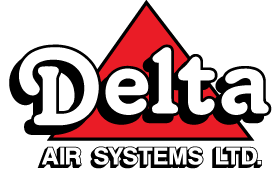Furnace
Buyers Guide
At Delta Air Systems, we understand how important it is for you get the most out of your decision, read through the guide below for helpful information.
Furnace Basics
How a Furnace Works
A furnace heats your home by using a fuel source—typically natural gas, propane, electricity, or oil. When the thermostat signals the need for heat, it activates the furnace. A gas control valve opens and regulates the flow of fuel to the burners. The fuel is then ignited by a pilot light or electronic igniter, creating a flame that heats the primary heat exchanger.
As the heat exchanger warms up, combustion gases pass through its internal passages and are safely vented outside. Meanwhile, a blower fan pushes cool air from your home over the hot surface of the heat exchanger. This warms the air, which is then distributed throughout your home via the ductwork. Once the indoor temperature matches the thermostat setting, the furnace shuts off until heat is needed again.
How a Gas Furnace Works
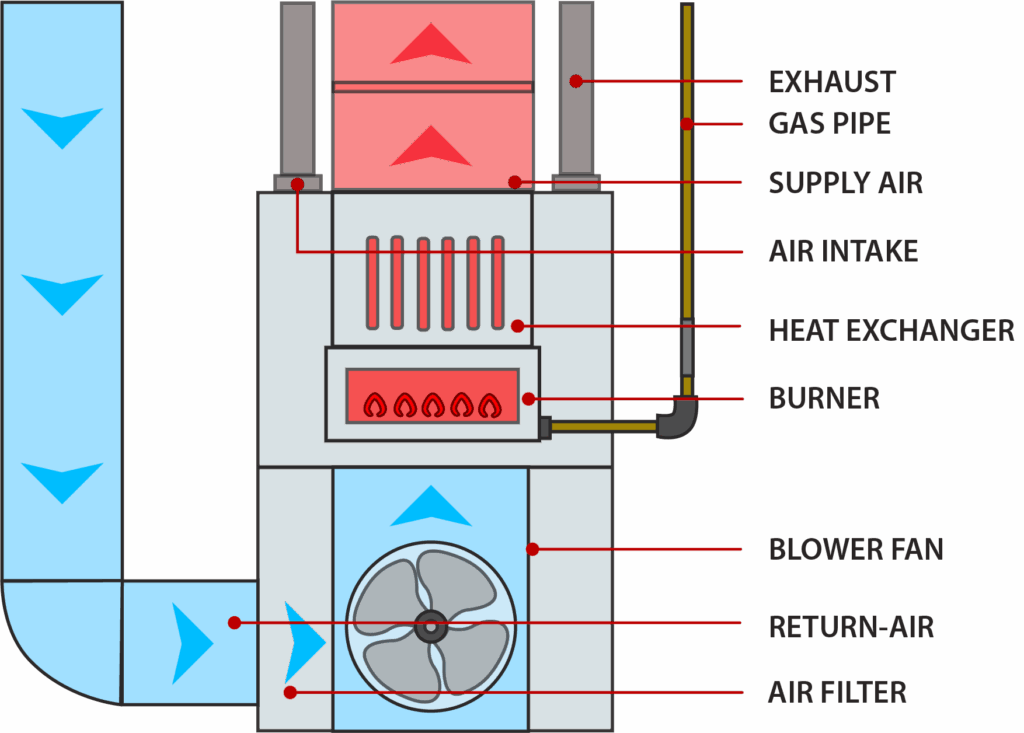
Furnace Types
The Three Main Types of Furnaces
There are three main types of furnaces: natural gas, propane, and electric. Natural gas furnaces are the most common and typically the most cost-effective in areas with gas lines. Propane furnaces are similar but used in rural areas without gas service. In cold regions, propane furnaces provide better heat and lower costs, while in milder climates, electric furnaces or heat pumps may be sufficient.
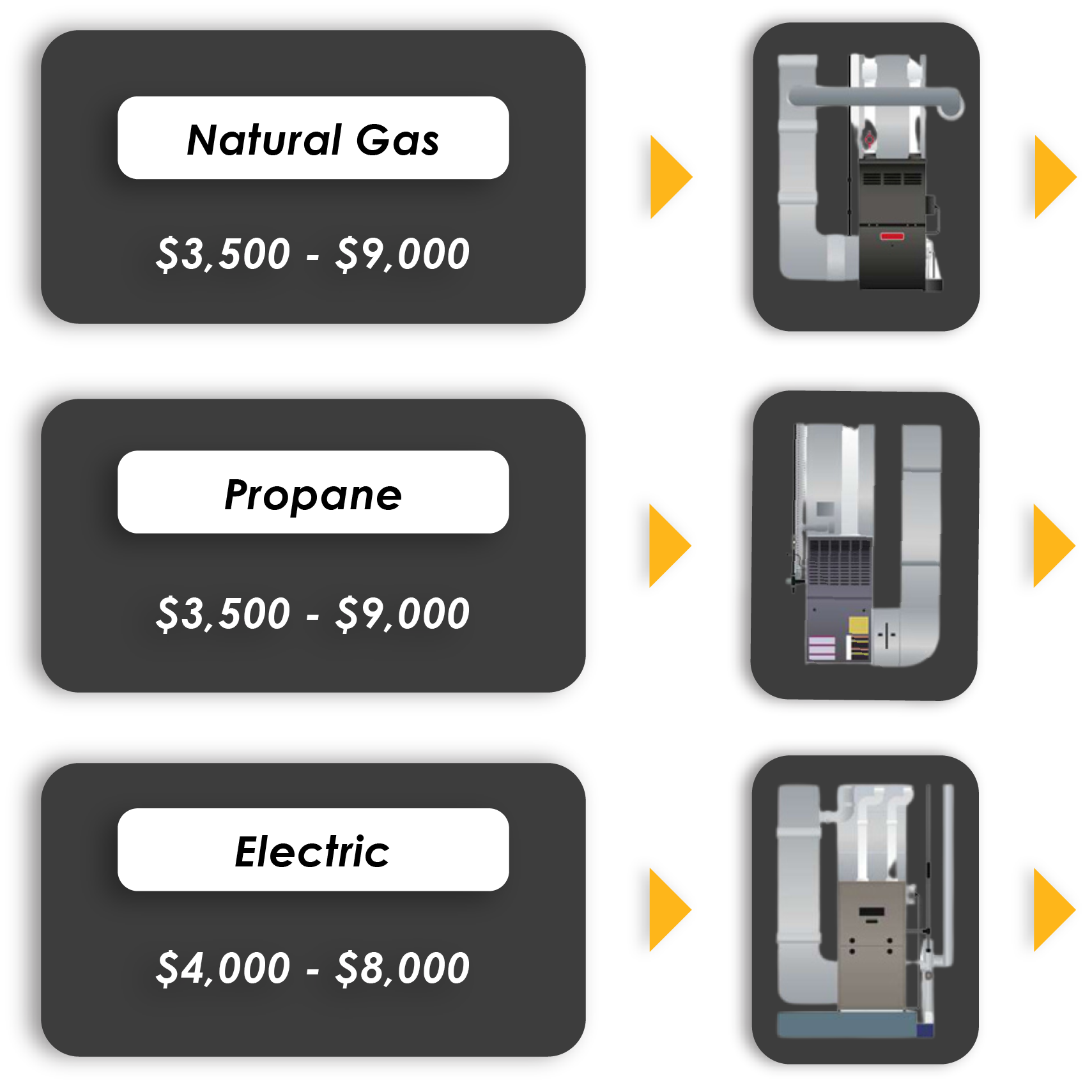
What Affects the Cost of a Furnace?
There are several factors that can influence the cost of a new furnace. These include the brand and efficiency rating of the unit, as well as any installation materials required to meet current building codes. Optional upgrades—like enhanced filtration, zoning, or humidification—can also improve comfort and efficiency, depending on your home’s needs. Your existing setup, the complexity of the installation, and labour involved all play a role in the final price. During your free in-home consultation, we’ll walk you through all your options and provide a clear, customized quote.
Blower Motor Options & Why They Matter
The type of blower motor in your furnace — PSC, ECM, or Variable-Speed — greatly affects your home’s temperature consistency, energy use, and overall comfort. PSC (Permanent Split Capacitor) motors run at a single speed, making them less efficient and noisier, as they turn on and off more frequently. ECM (Electronically Commutated Motor) models are more efficient and quieter, adjusting airflow more smoothly. Variable-speed motors take this a step further by constantly adjusting their speed to maintain a steady temperature throughout your home, reducing hot and cold spots and lowering energy bills. Choosing the right motor can improve comfort, reduce noise, and help your HVAC system last longer. Check out the comparison charts below to help make the differences easier to understand!

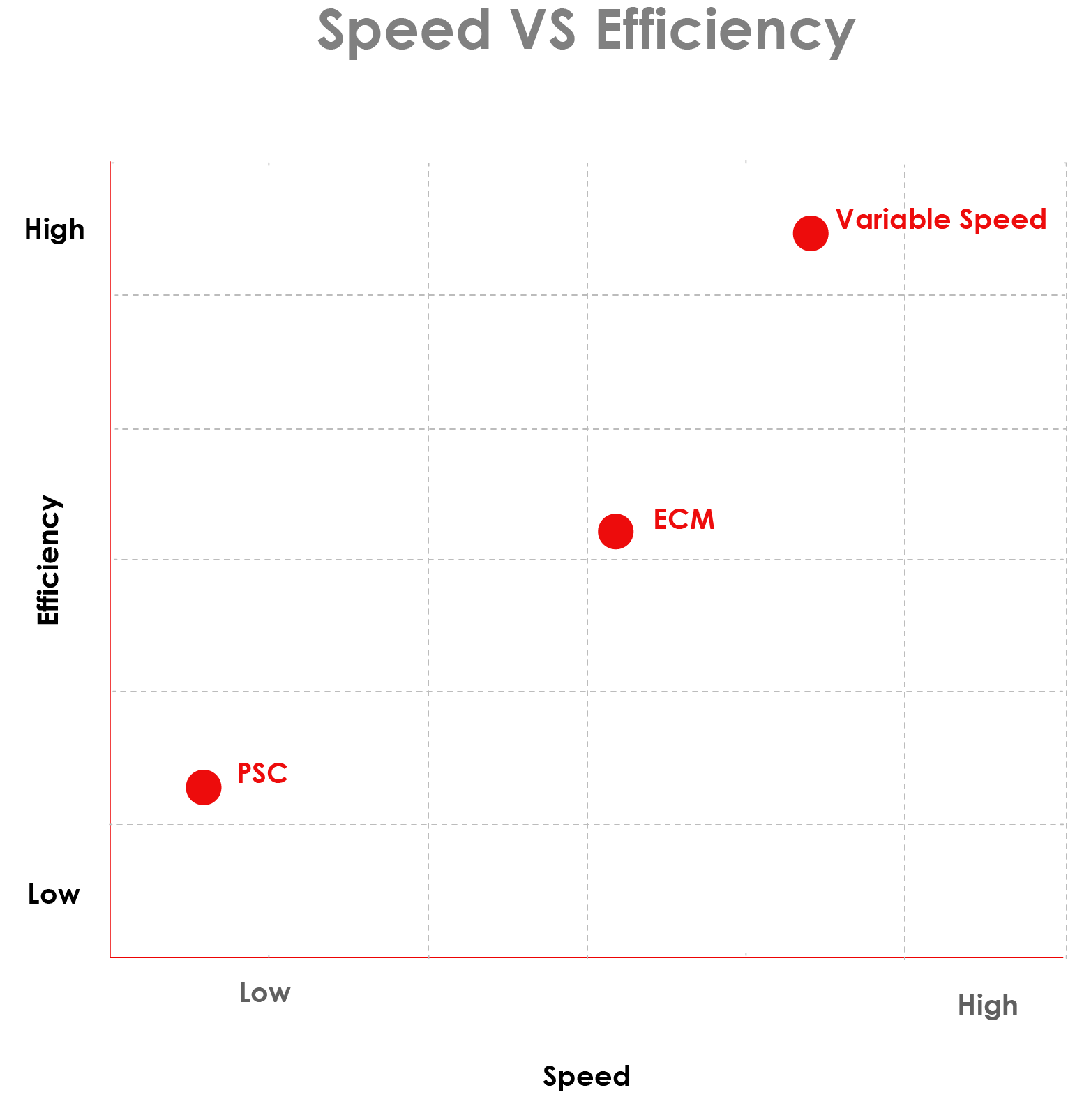
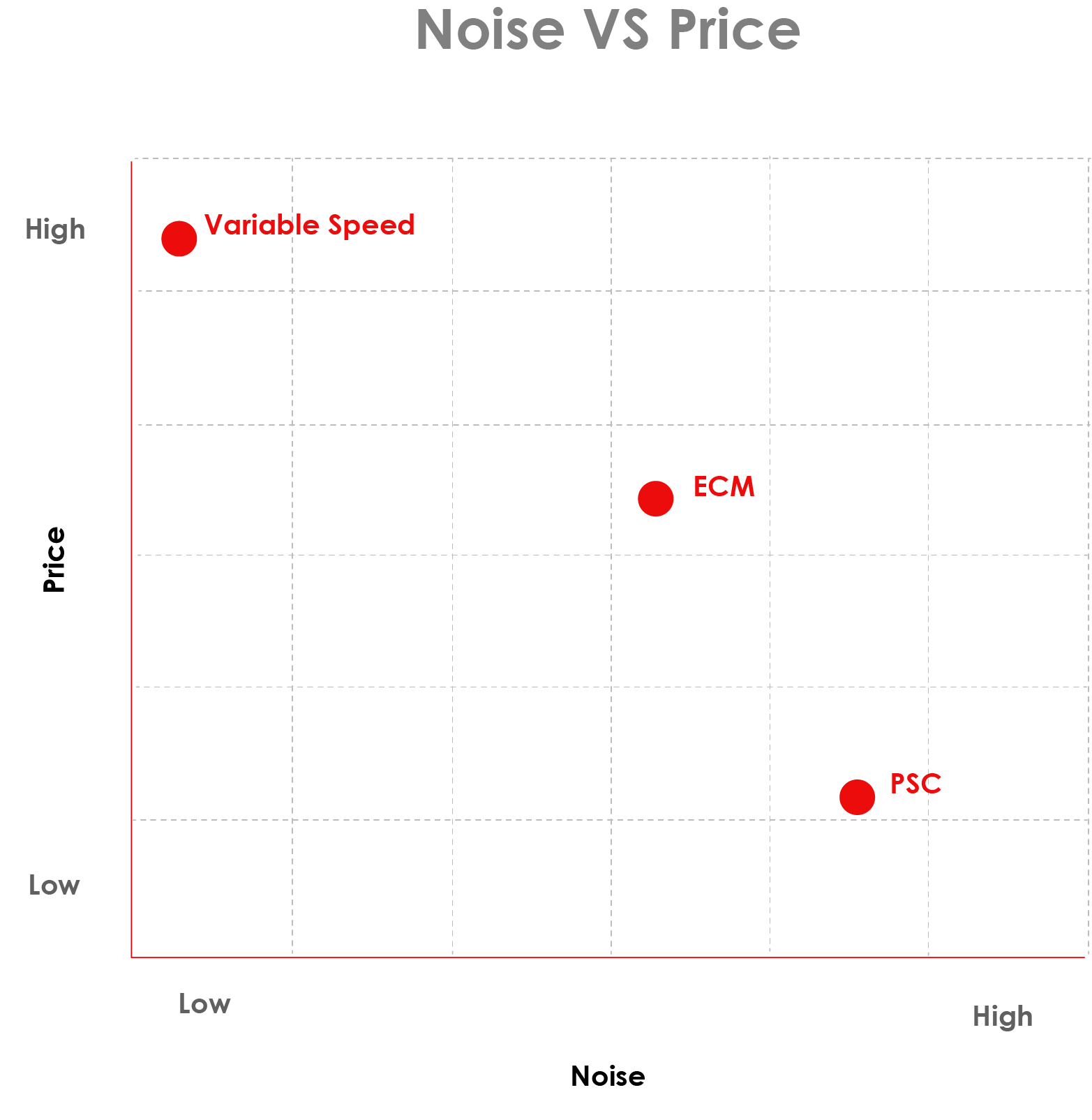
Furnace Costs
At Delta Air Systems, we understand that purchasing a new furnace is a significant investment. Many customers ask us for an exact price over the phone or online, but to provide an accurate quote, we need to visit your home for a complimentary in-home consultation. Here’s why:
The Cost Of Replacing Or Repairing Your Furnace
Replacing a furnace is a significant decision, and we always recommend consulting with an HVAC professional to help guide the process. However, there are some clear signs that it may be time to consider a replacement:
Your furnace is 15 years old or older
You’re dealing with frequent repairs
You’ve noticed a sudden spike in energy bills. Older furnaces often operate at 70–80% efficiency, while new models can be 96%+ efficient
The furnace is making loud or unusual noises
Older units may struggle to keep up with heating demands, leaving rooms unevenly heated or drafty
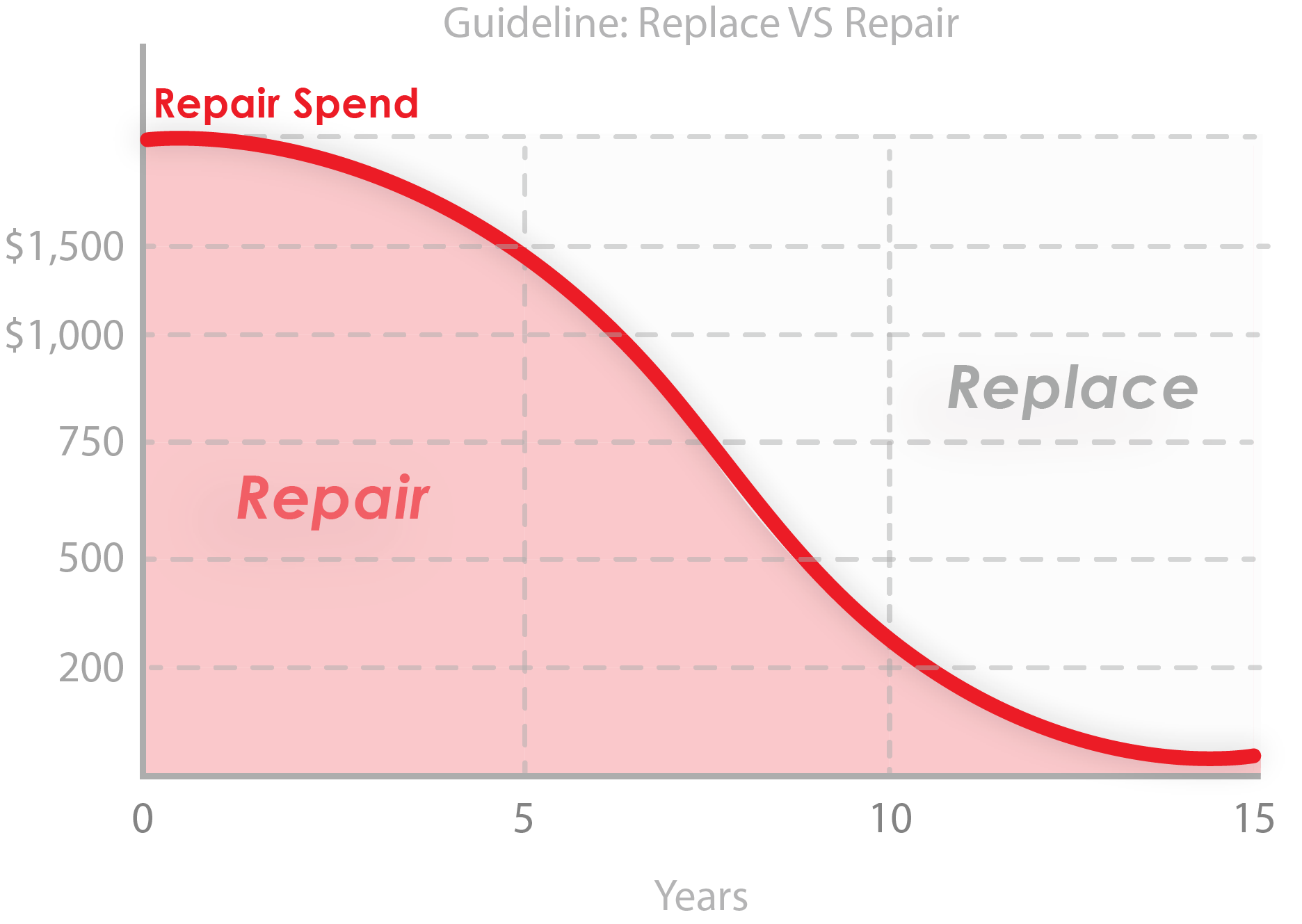
Later in this guide, we’ll cover furnace maintenance and troubleshooting tips in more detail.

Why Do We Need an In-Home Consultation?
To provide you with the most accurate pricing and the best possible solution, we need to assess your home and understand your specific needs. During your free consultation, a Delta Comfort Advisor will:
- Take precise measurements of your space
- Document your current HVAC system with photos
- Evaluate venting, wiring, and ductwork requirements
- We focus on your priorities—what you like and dislike about your current system, and the comfort you want to achieve with your new unit
This thorough process allows us to custom-design and fabricate all necessary ductwork in our Waterloo warehouse before installation day. Unlike many HVAC companies that cut ductwork on-site, our approach reduces noise, minimizes mess, and ensures a smoother, more efficient installation.
What to Expect After Your In-Home Consultation
Once we have gathered all the necessary information, we will provide you with a quote that includes:
- Good, Better, and Best Value Options, tailored to your comfort and budget.
- Available government and manufacturer rebates.
- Multiple payment options, including outright purchase, financing, and rental plans.
- A final cost confirmed before installation begins, with no hidden charges.
What if an unexpected issue comes up during installation?
- Consult with you before proceeding.
- Educate you on all available options.
- Only move forward with your approval.
Our goal is to ensure transparency, top-quality service, and your complete satisfaction with your new heating system.
What Are My Options For Dealing With Cost?
At Delta Air Systems, we’re committed to making your home comfortable and your payment process stress-free. With our rental, lease to own, and financing options, you can enjoy the HVAC system you need today while deferring payments for 6 months — with no payments and no interest!
Lease To Own
Own the system over time: Low monthly payments with ownership at the end of the lease.
Annual Maintenance, Parts and Labour are Included! That is one less thing to worry about!
No upfront costs: Start enjoying your new HVAC system immediately.
No Credit Check: Access high-quality HVAC systems without barriers or stress associated with credit inquiries.
12 months deferral: No payments or interest for the first 12 months.
No hidden fees:
Transparent agreements with no surprises.
This option is perfect for homeowners looking for an affordable path to ownership without the stress of a large upfront cost and one less thing to worry about for the duration of the term!

Financing
Competitive interest rates after the deferral period. Customizable repayment terms to fit your budget.
No hidden fees:
Transparent agreements with no surprises.
12 months deferral: Postpone payments with zero interest during this period.
This option is ideal for homeowners seeking to enjoy small, manageable monthly payments with the freedom to pay off the loan anytime — your comfort, your terms!
Furnace Installation
What to Expect with a Furnace Installation
It’s important to understand that your furnace works in tandem with your home’s entire ventilation and cooling system. That’s why we strongly recommend updating your full HVAC system at the same time—to ensure compatibility and maximize overall performance.

Once the appropriate furnace type, size, and efficiency level have been selected, your HVAC expert will begin the installation process. Most installations can be completed in a single day, including the safe removal of your old system. However, projects that require extensive ductwork may take a few days to complete.
At Delta Air Systems, we also prioritize indoor air quality. During installation, we check for additional components like whole-home humidifiers, air filtration systems, mechanical ventilation, and smart thermostat controls to ensure your new system provides both optimal comfort and clean, healthy air.
After installation, your technician will thoroughly test the new equipment, explain how to operate and maintain it, and recommend a schedule for regular maintenance. Be sure to keep all manuals, warranty documents, and paperwork in a safe place for future reference.
Maintenance & Repair
Furnace Troubleshooting and Maintenance Tips
A faulty furnace in the middle of winter can make your home uncomfortable and also be expensive to repair. Before you call a service technician about your unit, there are a few basic diagnostic steps you can perform.
Furnace Won’t Turn On
In cases where the furnace will not turn on, be sure to:
- Check that your thermostat is on and functioning.
- Check your furnace switch is on.
- Check your circuit breaker at the electrical panel.
- Check your furnace filter and change them if necessary.
If you hear loud bangs or smell gas, do not operate electrical components. Leave the home immediately and call your gas company. They’ll send an expert to evaluate the risk of a gas leak. Afterward, you can get in touch with an HVAC expert for furnace repairs or replacement.
The Furnace Is Noisy
A homeowner most commonly notices the amount of noise their furnace makes after they first move into a new home. This is often because they’re comparing it to their old furnace. One possible reason for the difference is the type of fan motor the furnace has. A single-stage fan only blows at a high setting and will be noisier than a multi-stage or variable-stage fan. The furnace may also be improperly sized for the home causing it to run all the time. Or your furnace may be working harder because of a clogged furnace filter. Start with changing your furnace filter and if the noise persists, call an expert to assess the furnace.
There is Not Enough Heat
If there’s not enough heat in the home, always check your furnace filter first, ensure your return vents are not obstructed, that furniture isn’t blocking any air vents and that the dampers are open. Make sure the thermostat is reading correctly supply and return vents. If these steps were taken and you’re still having a problem, an HVAC professional will be able to help figure out the cause.
The Furnace Keeps Shutting Off
A frequent cause of the furnace shutting off is a dirty filter. After replacing the furnace filter, if the problem continues, then call a professional. This is a strong indicator that there’s a failing part in the furnace.
Routine Maintenance
After your furnace is installed, a licensed technician should perform quality checks and cleaning of all major components every 1–2 years to ensure the system continues to operate at the manufacturer’s standards. Furnace filters should be replaced monthly—or as recommended—based on the filters size, efficiency and your home’s air quality needs.
At Delta Air Systems, we offer Protection Plans with Maintenance that include benefits like same-day service for breakdowns, parts and labour coverage, and 24/7 customer support. We recommend scheduling your furnace inspection and maintenance during the summer months—before the cold weather arrives—to ensure your system is ready when you need it most.
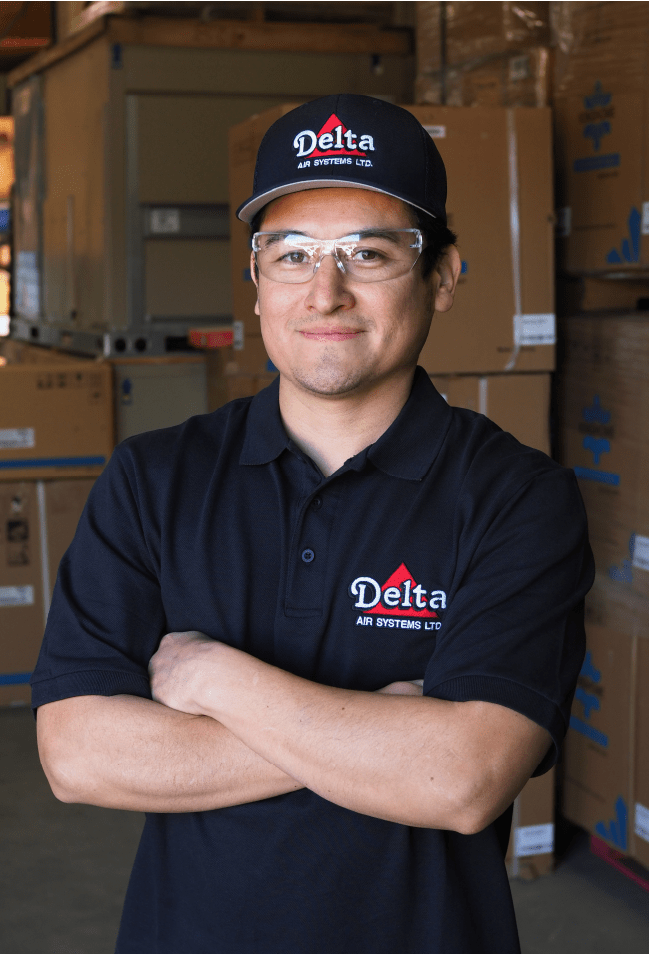
Found this Buyers Guide Helpful?
Share it with a friend!
